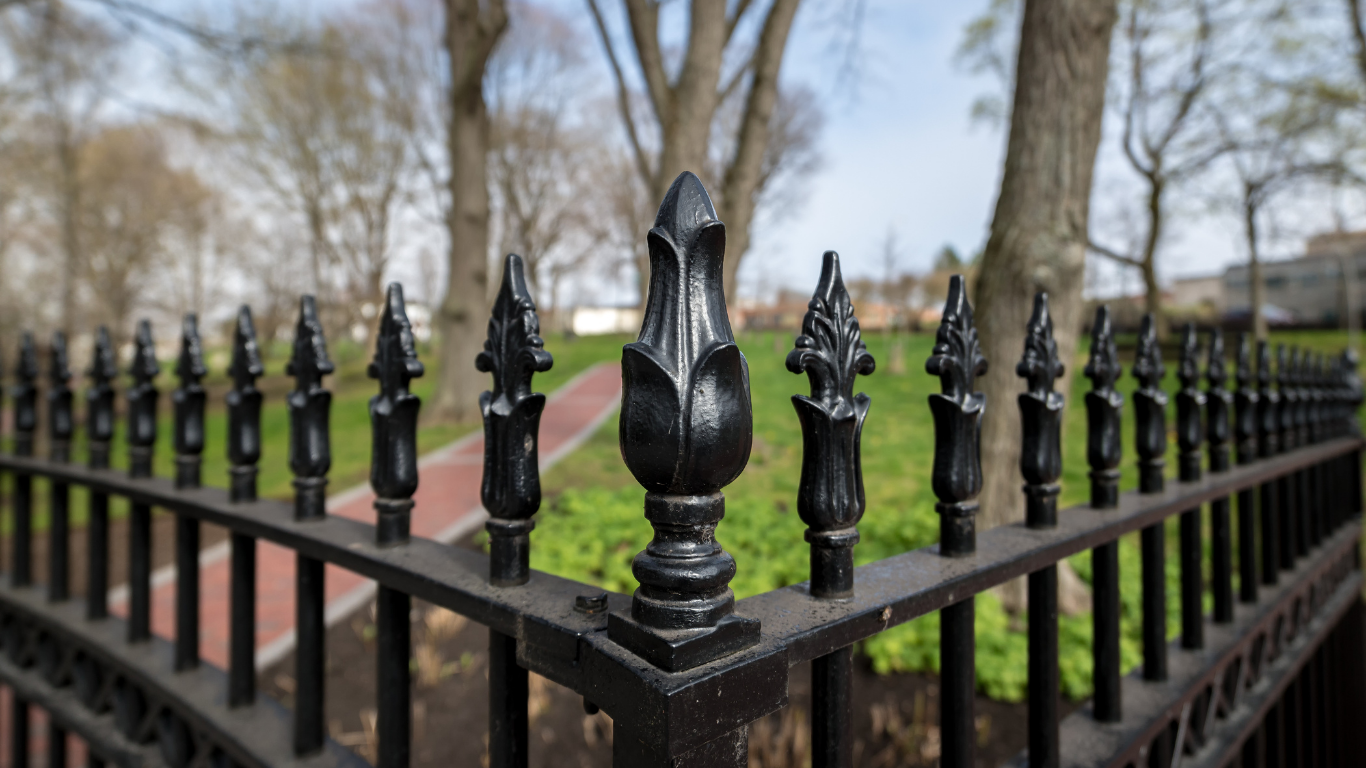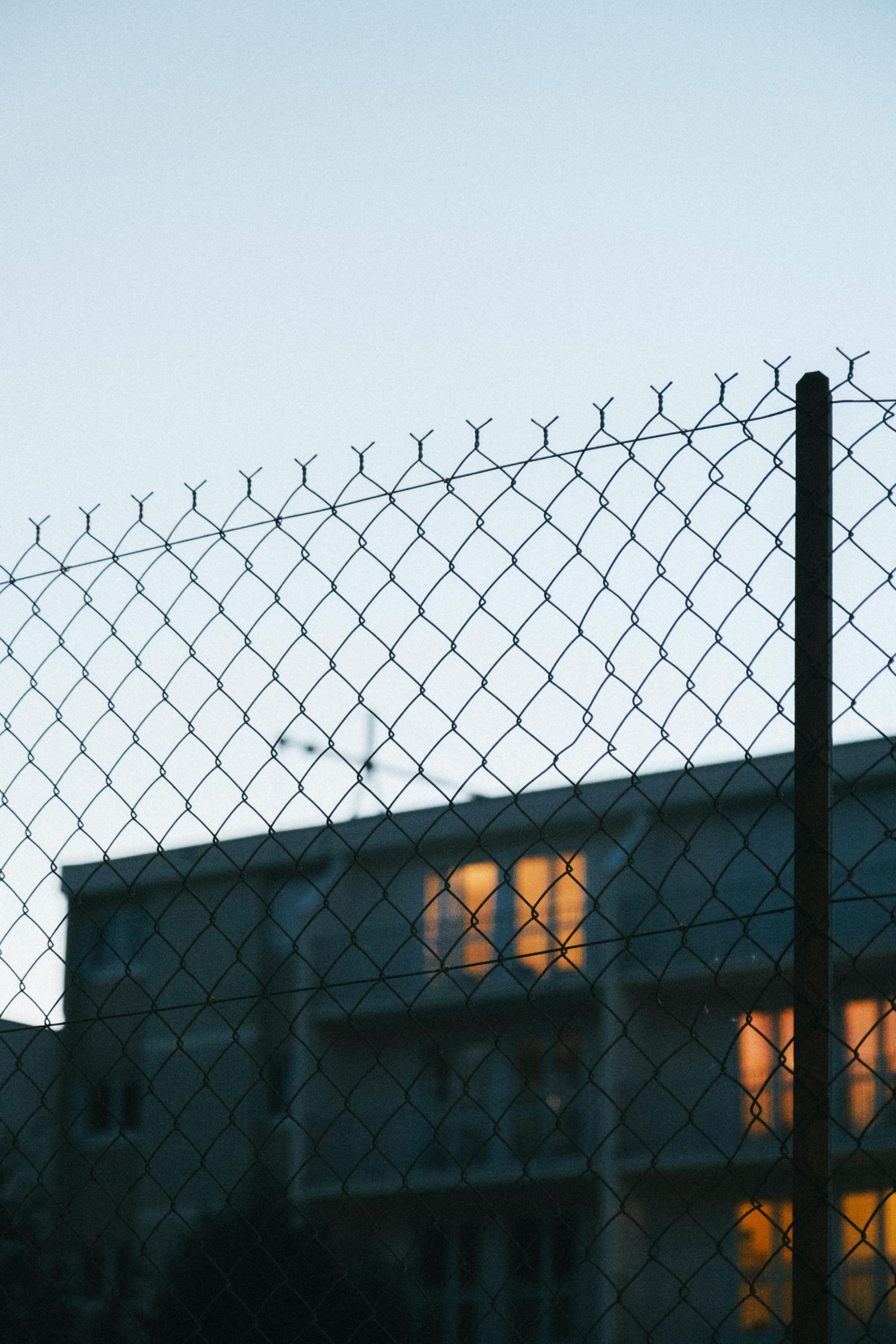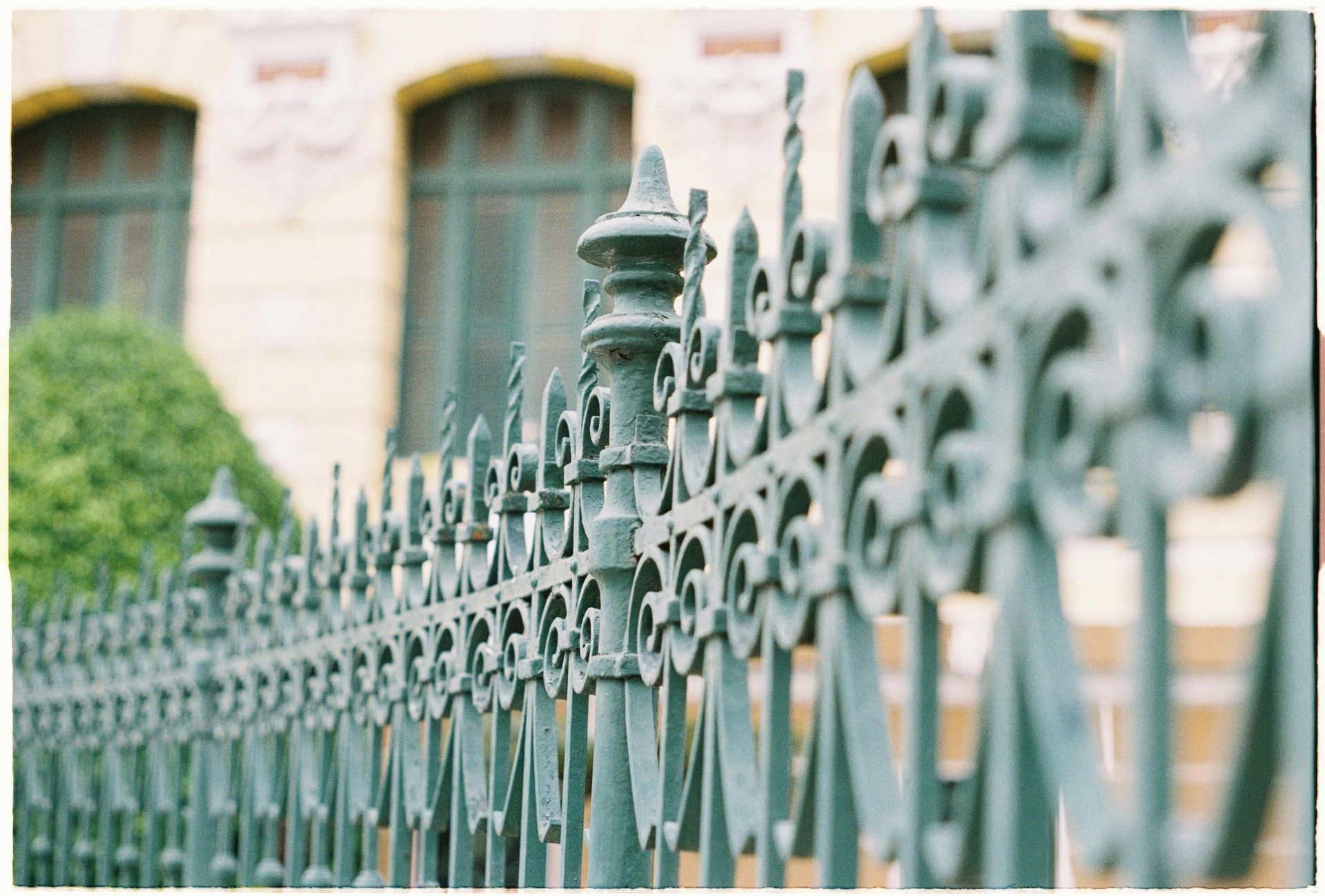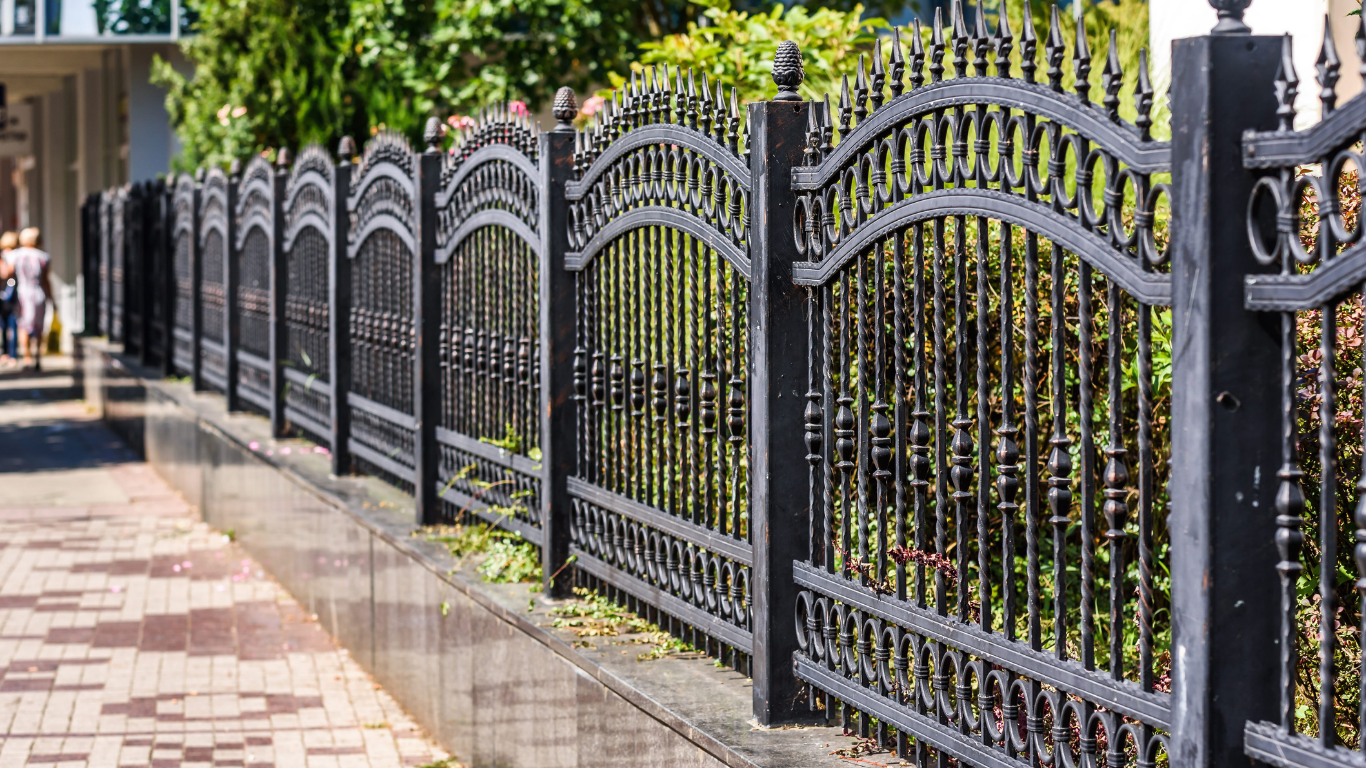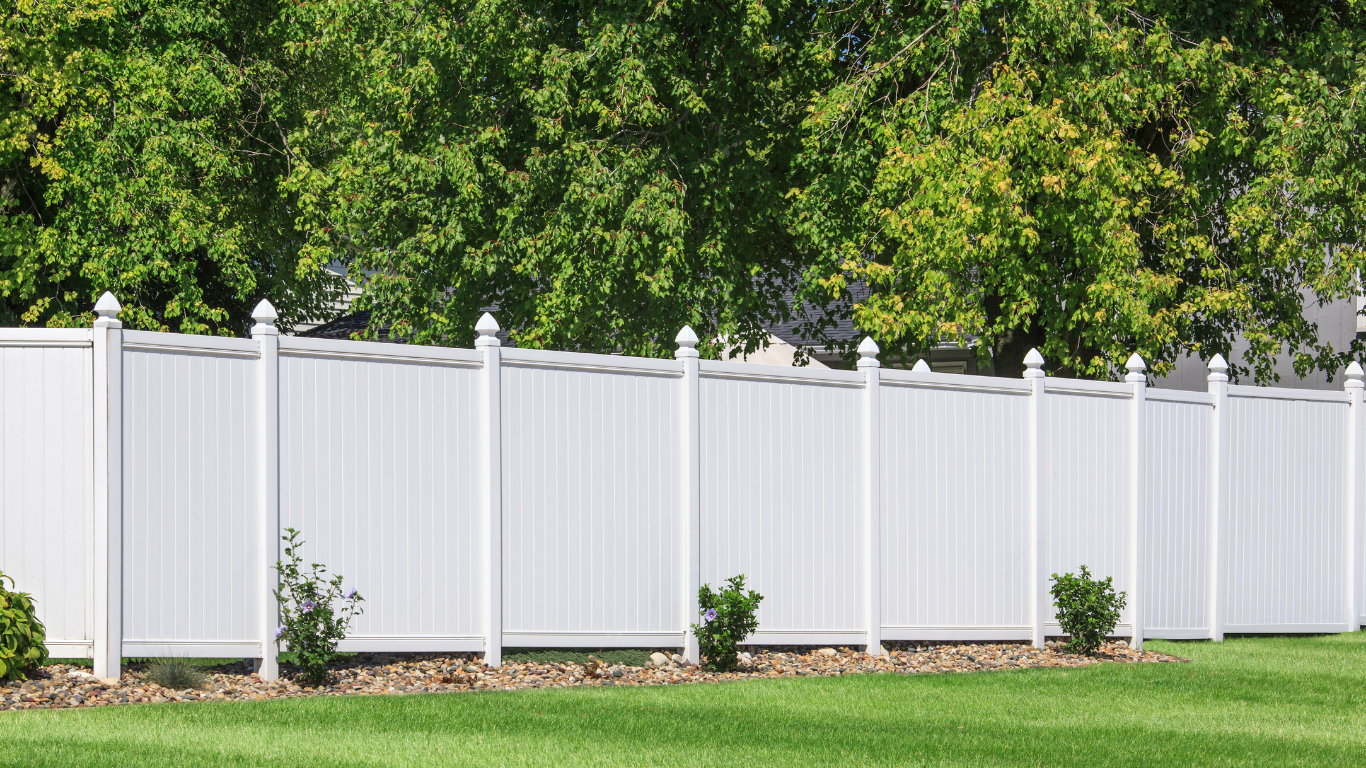Choosing Between Iron and Wood Fencing for Maximum Security
Choosing Between Iron and Wood Fencing for Maximum Security
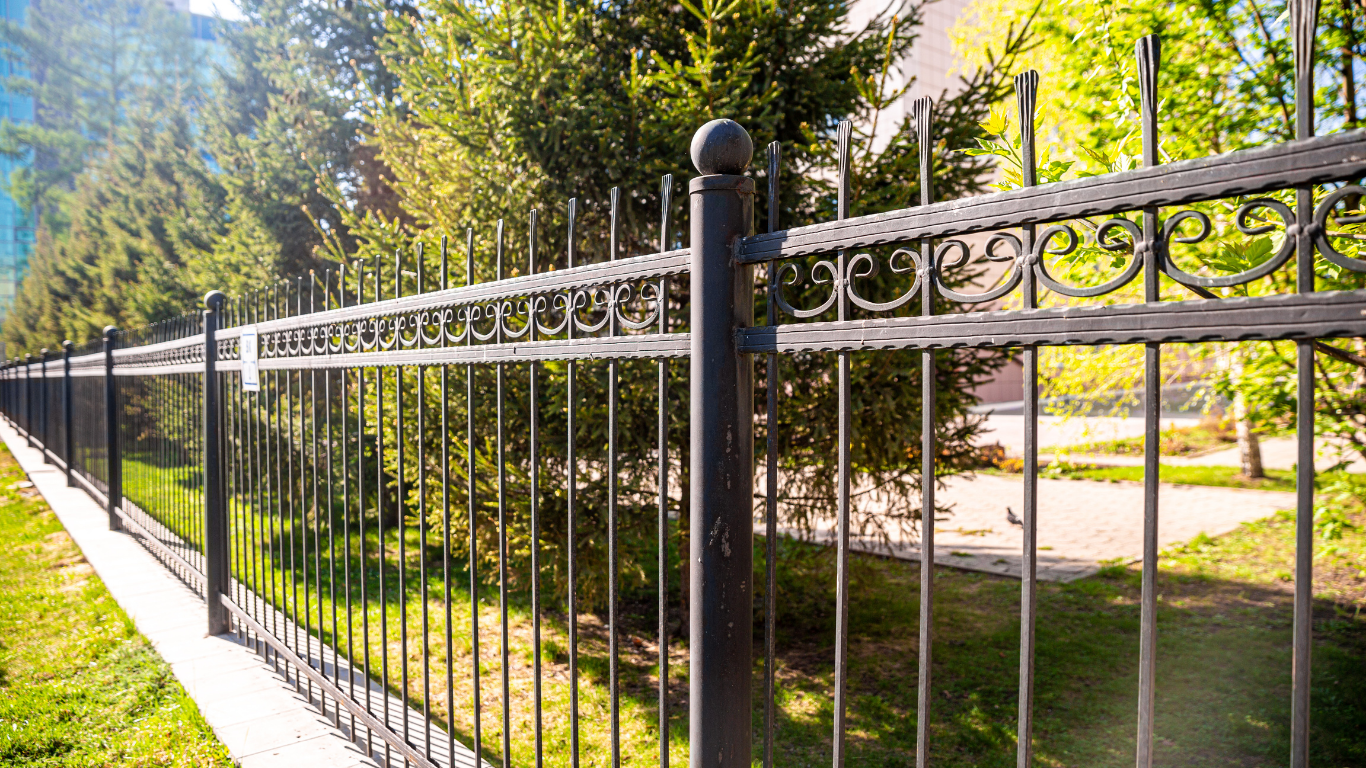
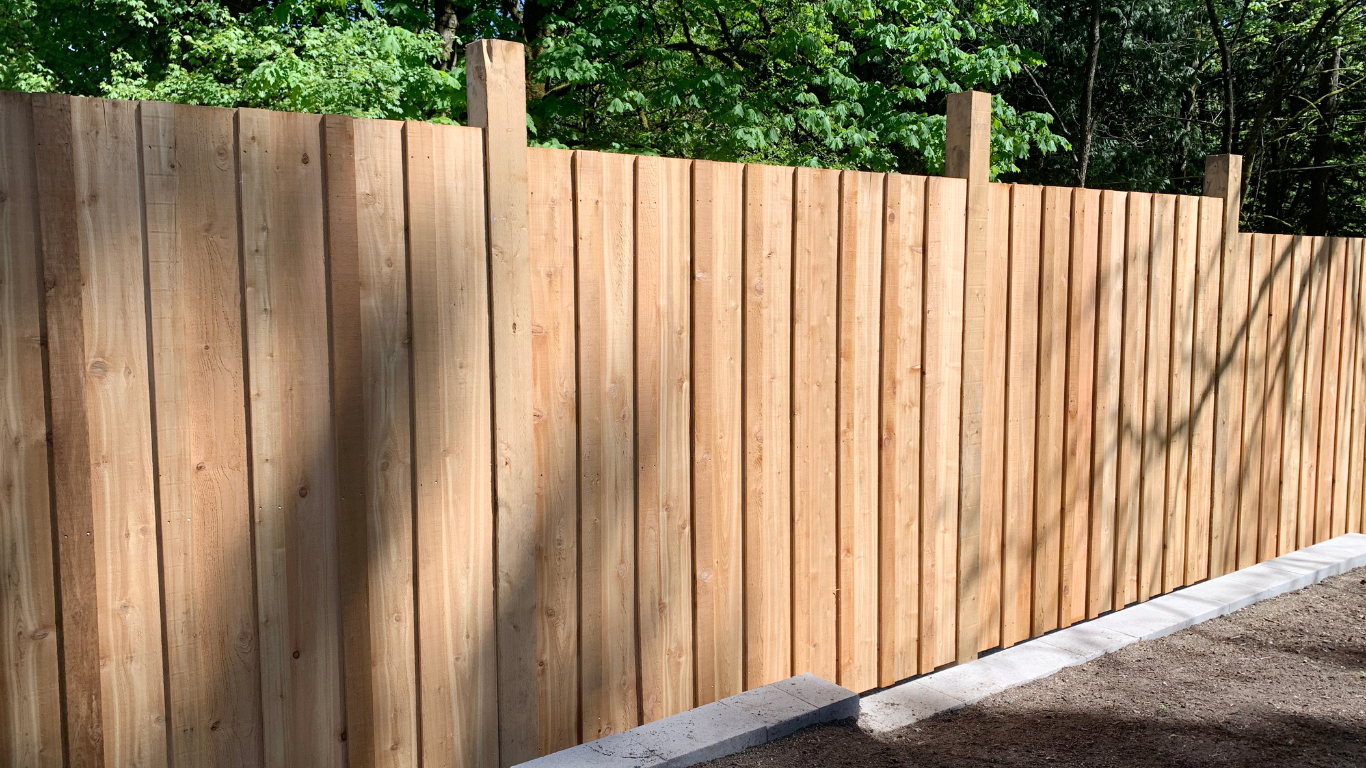
When it comes to protecting your property, the right fence plays a critical role. Whether you're looking to add a barrier for privacy, enhance your property’s curb appeal, or provide maximum security,
iron and
wood fences are two of the most popular options. Both materials offer distinct benefits, but when security is the primary concern, choosing between the two requires careful consideration.
We’ll explore the pros and cons of iron fencing and wood fencing, focusing on how each can be tailored to maximize security for your home or business. From durability to aesthetics, and maintenance requirements to cost, we’ll help you decide which fence material offers the best protection for your property.
1. Security Features: Iron vs. Wood
The primary purpose of a fence is to protect your property, and each material—iron and
wood—has its own security advantages. Let’s break down the security features of each.
Iron Fencing: Strong, Durable, and Difficult to Breach
Iron fences (including
wrought iron and
steel) are well-known for their strength and ability to prevent unauthorized access. Iron is one of the most
secure materials for fencing, especially when the fence is installed with specific security features like
spikes or
sharp tops.
Benefits for Security:
- Durability: Iron fences are highly durable and resistant to damage. Unlike wood, iron cannot easily be cut, bent, or broken by force, making it difficult for intruders to breach.
- Height: Iron fences can be made very tall, providing a physical barrier that’s difficult to climb. A tall iron fence is an effective deterrent against trespassers, especially when it’s topped with
spikes or
razor wire.
- Imposing Appearance: The
aesthetic of iron fences, particularly with added features like spikes or pointed tops, sends a clear message to potential intruders: this property is well-secured.
- Non-Climbable: Iron fences are generally designed to be difficult to scale. The vertical bars and sharp features reduce the likelihood of a trespasser attempting to climb over the fence.
Disadvantages:
- Cost: Iron fences tend to be more expensive than wood, both in terms of materials and installation.
- Rusting: If not properly treated, iron can rust over time, especially in areas with high humidity or near coastal regions. Regular maintenance, such as repainting, may be necessary to prevent rust.
Wood Fencing: Customizable but Less Secure
Wood fences offer a more traditional, natural look, but they are not typically as secure as iron fences, especially when it comes to preventing unauthorized access. While wood can provide privacy and boundary definition, it may not be the most effective option for high-security areas.
Benefits for Security:
- Privacy: Wood fences are often chosen for their ability to block out views, providing
privacy and reducing visibility into the yard or property. This makes it harder for potential intruders to observe your activities, which can be a deterrent in itself.
- Customization: Wood fences can be customized in a variety of ways, including
height,
design, and
finishes, to create a barrier that suits your security needs. You can add
lattice work,
reinforced posts, or
solid panels to make it harder to climb or breach.
- Cost-Effective: Generally, wood fences are less expensive than iron fences, making them a more budget-friendly option for homeowners who want a functional fence without the higher upfront cost of iron.
Disadvantages:
- Climbability: Wood fences are easier to climb than iron fences, especially if the fence is low or has footholds. A determined intruder can scale a wooden fence much more easily than an iron one.
- Vulnerable to Damage: Wood is susceptible to damage from weather, pests, and wear over time. High winds, heavy rain, and insects (like termites) can compromise the security of a wood fence if it’s not properly maintained.
Regular Maintenance: Wood requires regular maintenance, including painting, sealing, and staining to protect it from rot, decay, and fading. If neglected, a wood fence can deteriorate quickly, reducing its effectiveness as a security barrier.
2. Durability: Which Material Stands the Test of Time?
While security is the main concern,
durability is also an essential factor when choosing a fence material. A fence that deteriorates quickly will need more repairs and replacements, increasing both the
cost and
effort involved.
Iron Fencing: Built to Last
Iron fences are one of the most
durable options available. They can withstand
harsh weather conditions, high winds, and wear over time without compromising structural integrity. When properly maintained (such as applying rust-resistant paint), an iron fence can last for decades.
Durability Benefits:
- Weather-Resistant: Iron fences are not affected by
moisture like wood, which means they won’t warp or rot. They also perform well in high temperatures and extreme cold.
- Longevity: With proper care, iron fences can last
30+ years, offering long-term security for your property.
Wood Fencing: Less Durable, Requires Regular Upkeep
Wood fences, while aesthetically appealing, require more care and attention to maintain their integrity. Wood is prone to
rot,
splitting, and
decay when exposed to the elements, especially in
humid or
rainy climates. Regular maintenance (such as sealing and staining) is required to keep a wooden fence from deteriorating.
Durability Drawbacks:
- Weather Vulnerability: Wood is susceptible to
moisture and
pests, which can weaken its structure over time. In areas with heavy rain or extreme temperatures, wood fences may need to be replaced more frequently than iron fences.
Maintenance-Dependent: If a wood fence is not regularly treated or maintained, it can degrade quickly, reducing its ability to offer security.
3. Aesthetic Appeal: Which Fence Best Complements Your Property?
While
security is the primary purpose, a fence also contributes to the overall
aesthetic of your property. Depending on your property’s design and style, you might lean towards one material over the other for visual appeal.
Iron Fencing: Elegant and Classic
Iron fences, particularly
wrought iron or
steel, have a classic, timeless appeal. They are highly customizable, with options for
ornamental designs and
decorative accents. Iron fences can be designed to match the architectural style of your property, whether it’s
classic,
modern, or
industrial.
Aesthetic Benefits:
- Sophisticated Look: Iron fences have an elegant, polished look that adds a sense of
prestige and
luxury to your property.
- Customizable: You can choose from a variety of
ornamental styles, including scrollwork,
finials, and other decorative elements to create a fence that matches your vision.
Wood Fencing: Warm and Natural
Wood fences provide a warm, natural look that complements a wide range of
landscaping styles. Whether you choose
cedar,
redwood, or
pressure-treated pine, wood offers a rustic charm that is hard to replicate with other materials. A wood fence can blend seamlessly into gardens, yards, and outdoor spaces.
Aesthetic Benefits:
- Natural Beauty: Wood fences are ideal for homeowners who want a more
organic look for their property.
Customization: Wood fences are highly customizable in terms of design, staining, and painting. You can create a unique fence tailored to your home’s specific aesthetic.
4. Maintenance: Which Fence Requires Less Work?
One important factor to consider when choosing between iron and wood is the
maintenance required. A fence that requires frequent upkeep can become a burden over time.
Iron Fencing: Low Maintenance
Once installed,
iron fences require minimal maintenance.
Rust is the main concern, but it can be prevented with the proper treatment and care. A fresh coat of
rust-resistant paint every few years will keep your iron fence looking great and functioning properly.
Maintenance Benefits:
- Minimal Repairs: Iron fences are resistant to damage from weather, pests, and wear.
- Rust Prevention: Regular painting and coating protect the iron from rusting.
Wood Fencing: High Maintenance
Wood fences require more ongoing maintenance. Wood needs to be
sealed and
stained periodically to protect it from
moisture,
pests, and
decay. Wooden fences also need to be checked for warping, splintering, or broken boards that need repair or replacement.
Maintenance Drawbacks:
- Time-Consuming: Regular maintenance such as staining, sealing, and pest treatment is necessary to prolong the lifespan of a wood fence.
Vulnerable to Weather: Wood can warp, crack, or fade with prolonged exposure to sunlight and moisture.
5. Cost Considerations: Upfront and Long-Term Expenses
Cost is a crucial consideration when choosing between iron and wood fences. Let’s compare the costs involved with both options.
Iron Fencing: Higher Initial Cost, Long-Term Investment
While iron fences come with a
higher upfront cost, their
long lifespan and
low maintenance make them a good long-term investment. Iron fencing is generally more expensive to install due to labor and material costs, but its durability and low upkeep save money over time.
Wood Fencing: Lower Initial Cost, Higher Maintenance
Wood fences are generally
more affordable upfront, but they
require more frequent maintenance and repair. The cost of
staining, sealing, and
treating for pests adds to the long-term expense of a wood fence. Over time, you may also need to replace sections of the fence due to wear and tear.
Which Fence is Right for Your Property?
When deciding between
iron and
wood fencing for maximum security, there are several factors to consider:
durability,
maintenance,
aesthetic appeal, and
long-term costs.
- Choose Iron if you want a
strong, low-maintenance fence that provides maximum security. Iron fences are ideal for homeowners who need a
long-lasting, durable solution that will require minimal upkeep over the years.
- Choose Wood if you prefer a
natural, customizable fence that enhances the aesthetic appeal of your property. While it may require more maintenance, a well-maintained wood fence offers a
warm, rustic look that can complement your outdoor space.
At
Aztec Fence, we can help you choose and install the perfect fence for your property. Whether you’re looking for the strength of
iron or the charm of
wood,
we offer professional installation and expert advice to meet your security and aesthetic needs.
